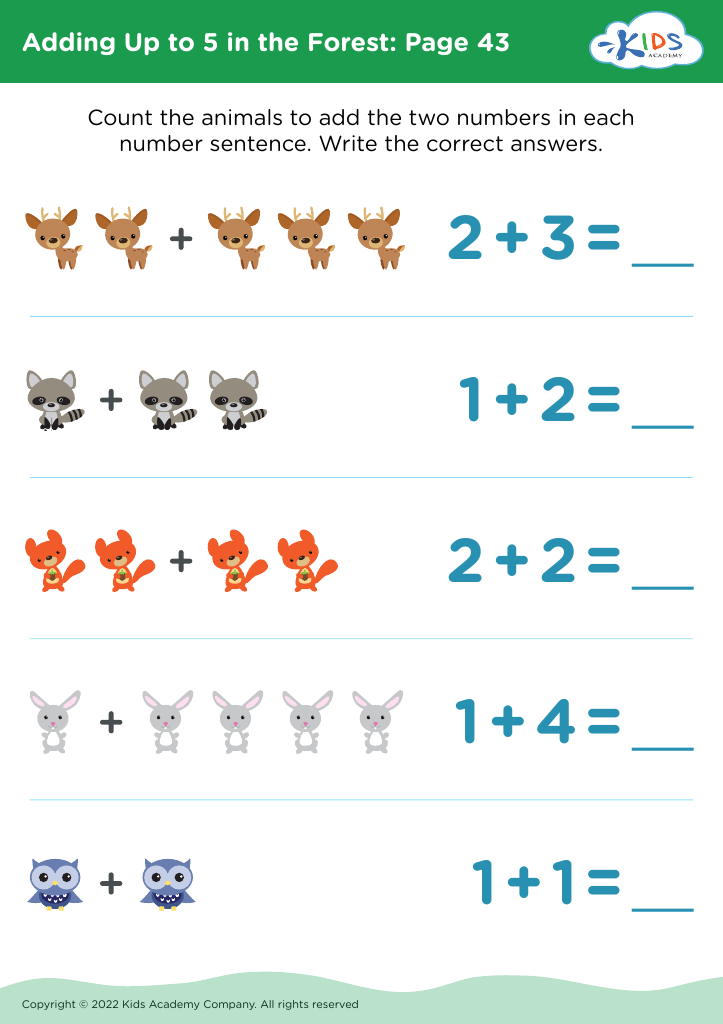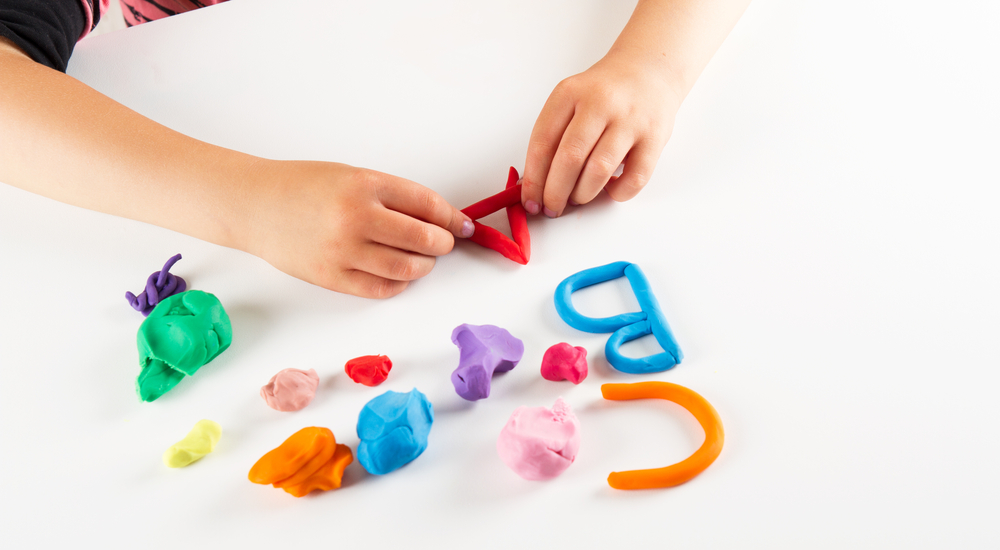Comprehension skills Worksheets for Ages 4-7
27 filtered results
-
From - To
Unlock your child's potential with our expertly crafted Comprehension Skills Worksheets, perfect for ages 4-7. These engaging, printable activities are designed to improve young learners' understanding of stories, instructions, and informational texts. Each worksheet focuses on essential reading comprehension strategies such as identifying the main idea, recalling details, and predicting outcomes, making learning fun and effective. Ideal for use at home or in the classroom, our resources will help your child thrive in their early educational journey. Visit Kids Academy to give your budding reader the boost they need to excel and foster a lifelong love of learning.
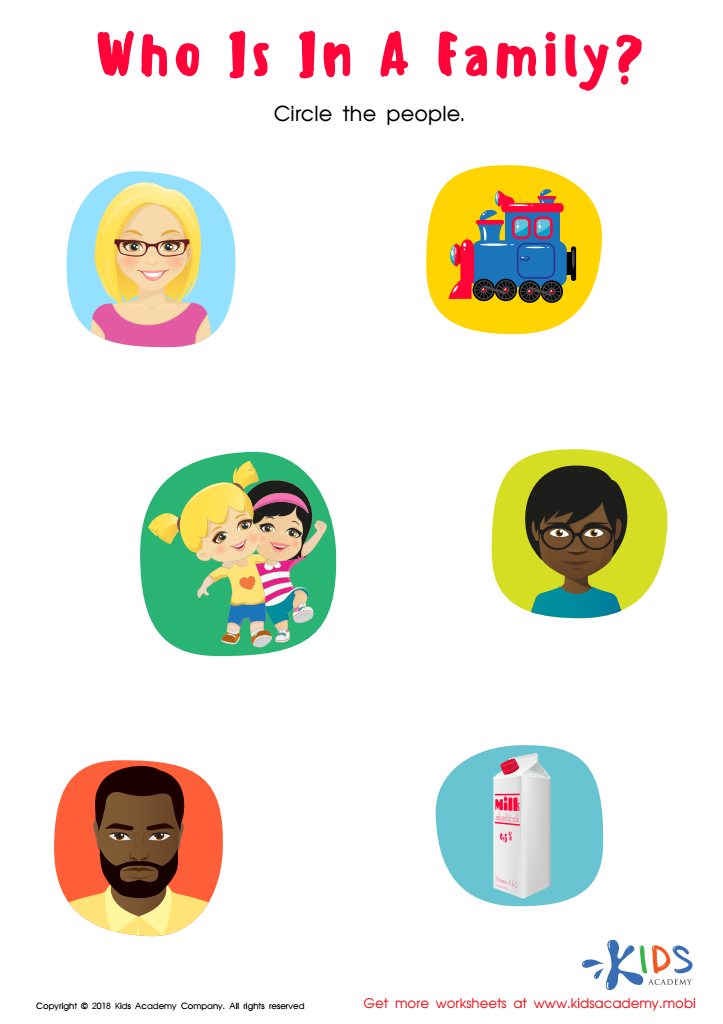

Who Is in a Family? Worksheet
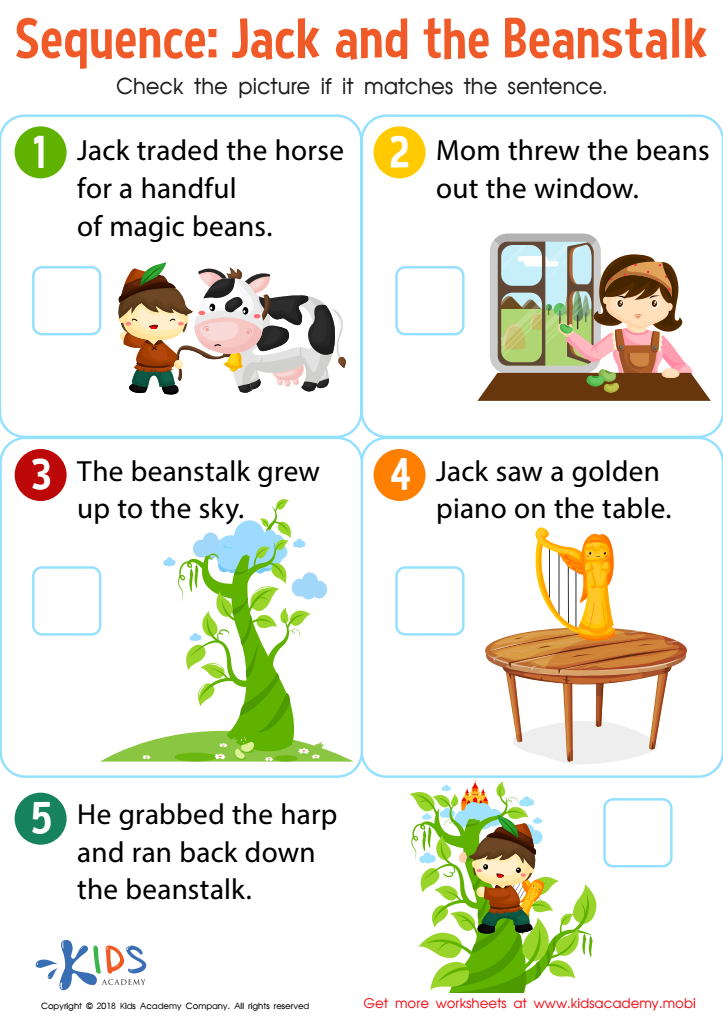

Sequence: Jack and The Beanstalk Worksheet
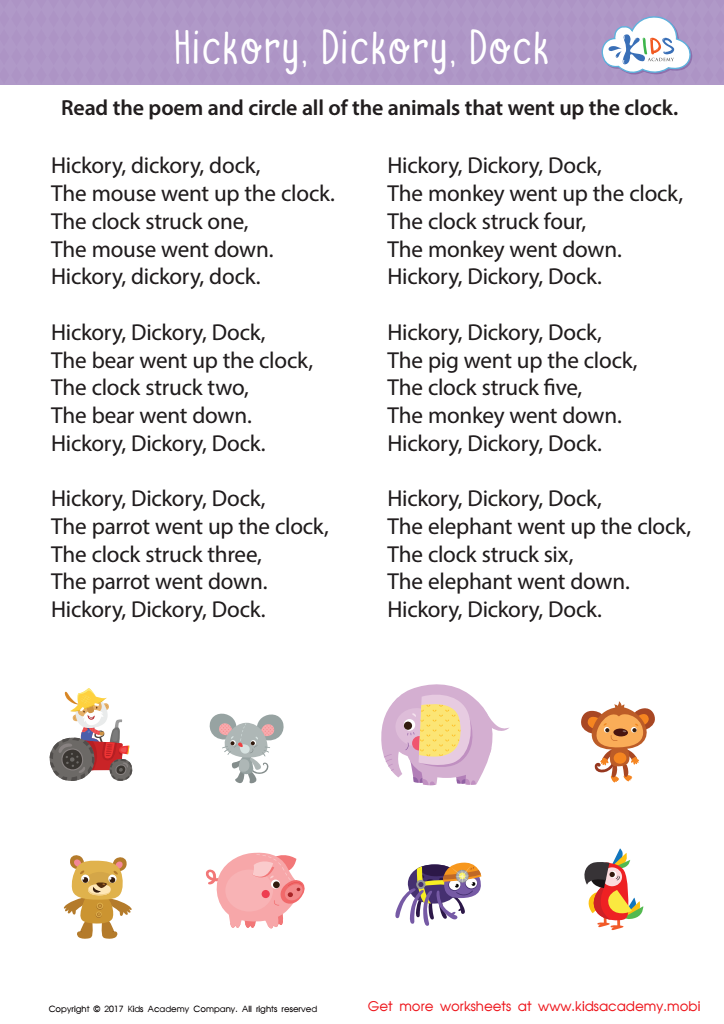

Hickory Dickory Dock Sequencing Worksheet
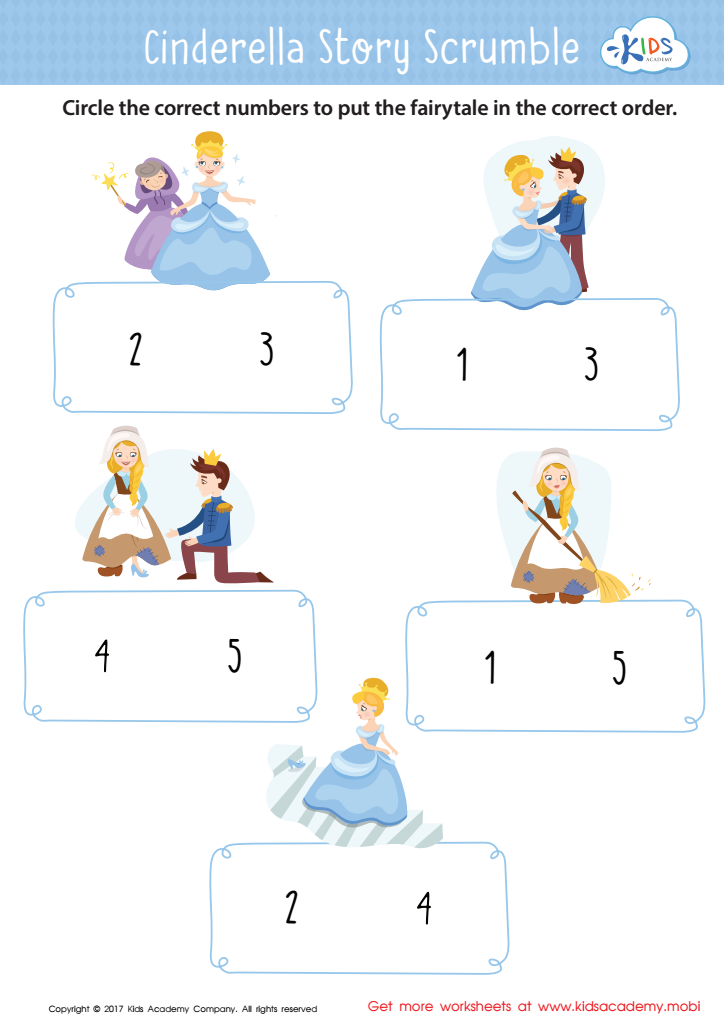

Cinderella Story Sequencing Worksheet
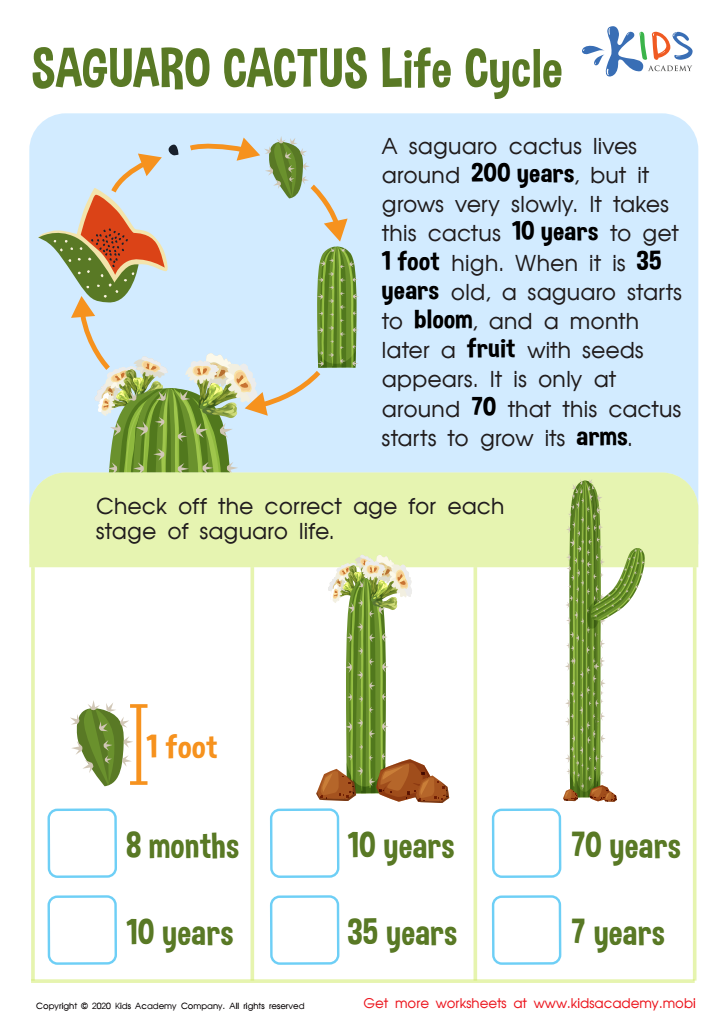

Saguaro Cactus Life Cycle Worksheet
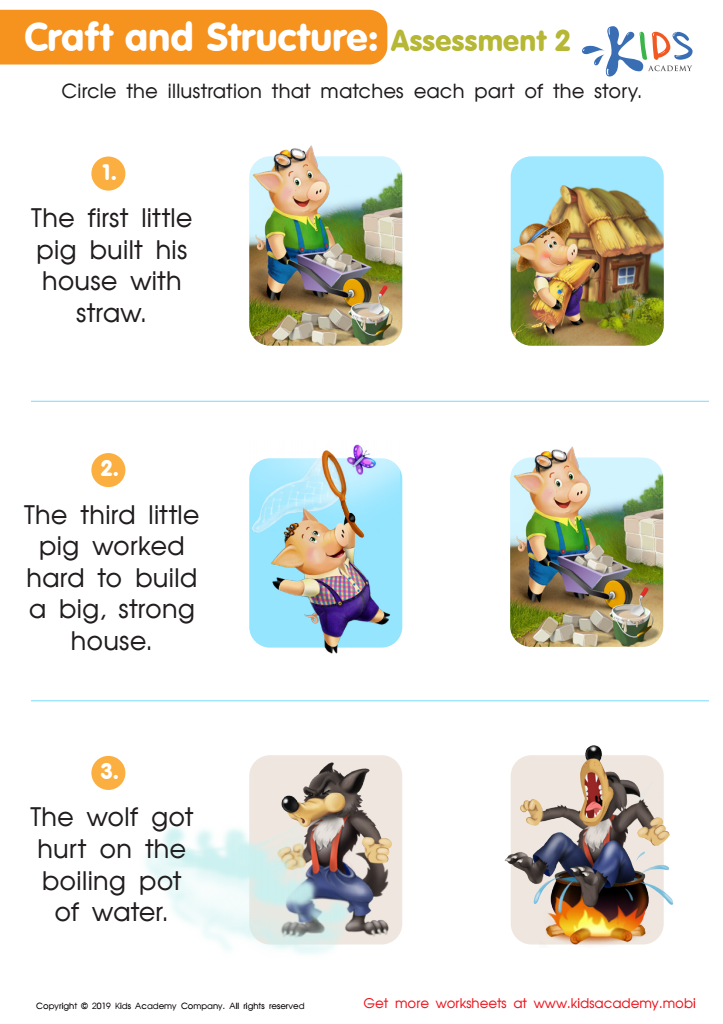

Craft and Structure: Assessment 2 Worksheet 2
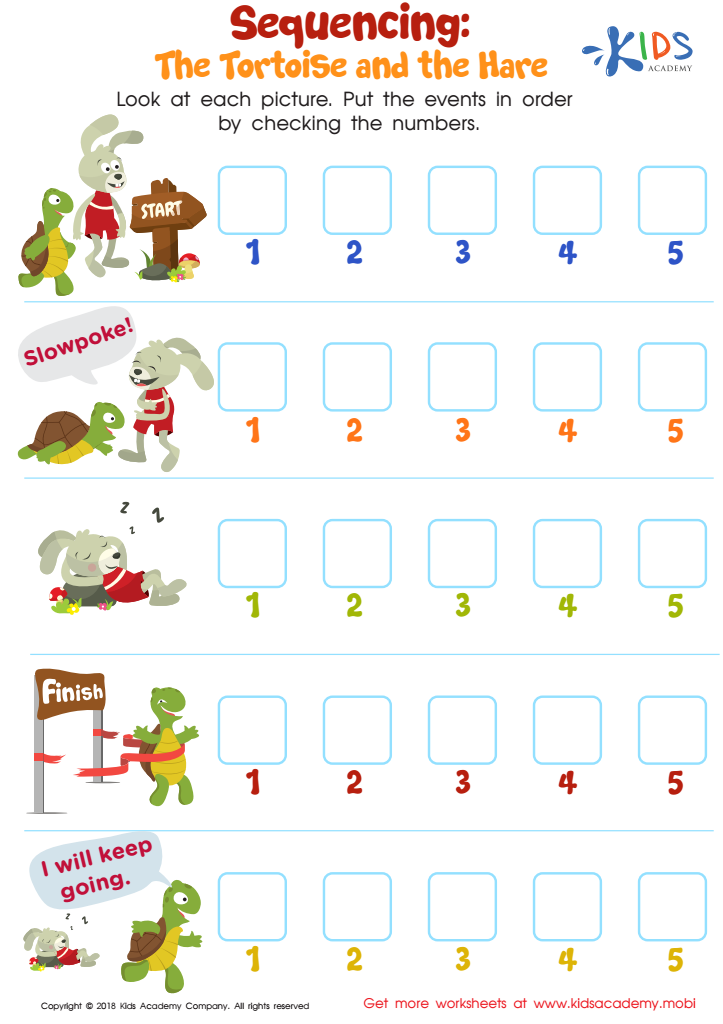

Sequencing: The Tortoise and the Hare Worksheet
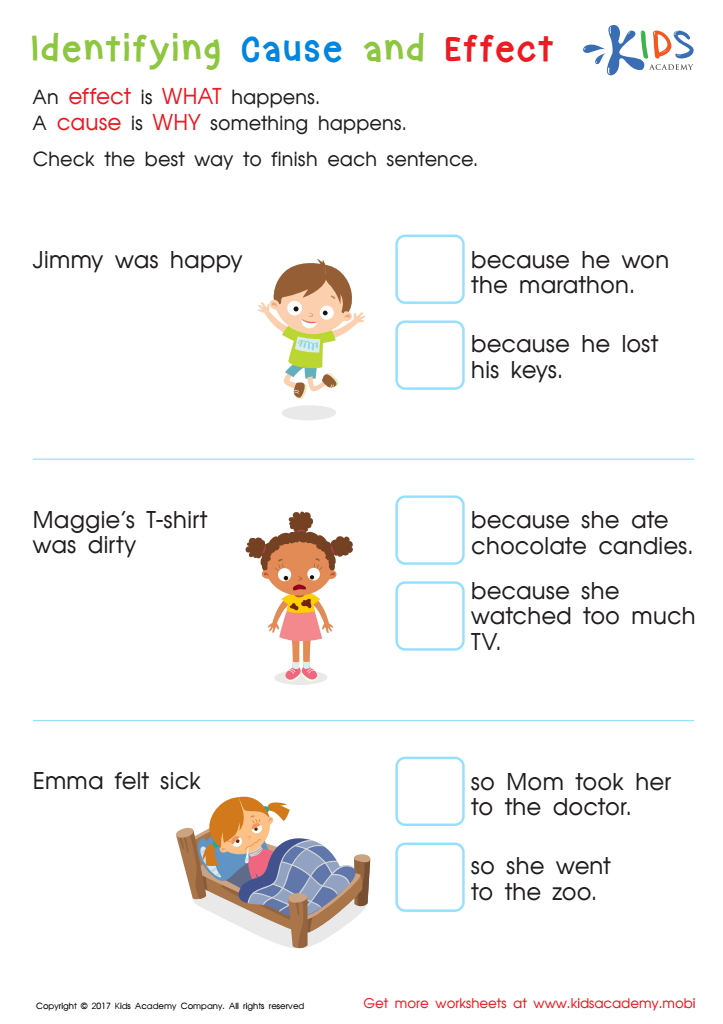

Indentifying Cause and Effect Worksheet
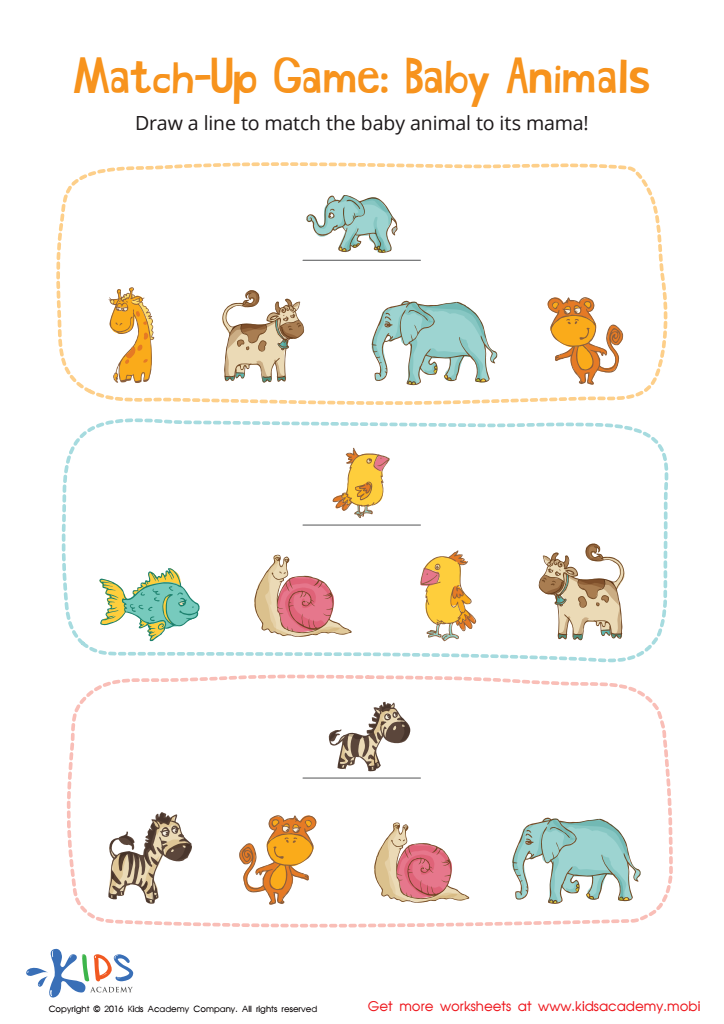

Baby Animals Match-Up Worksheet
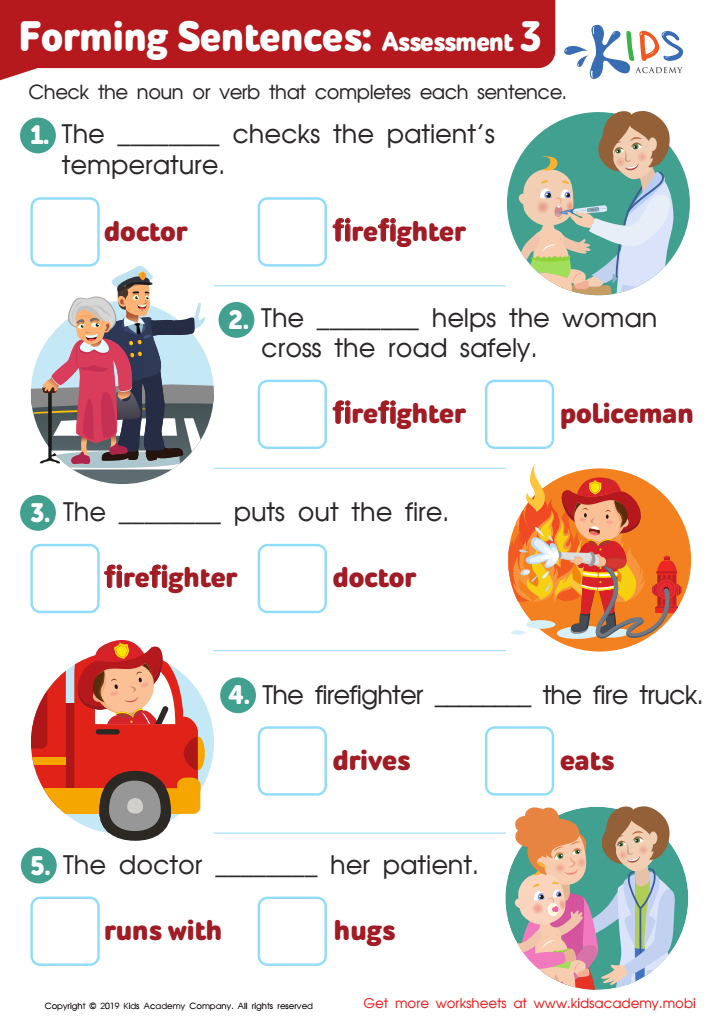

Forming Sentences: Assessment 3 Worksheet
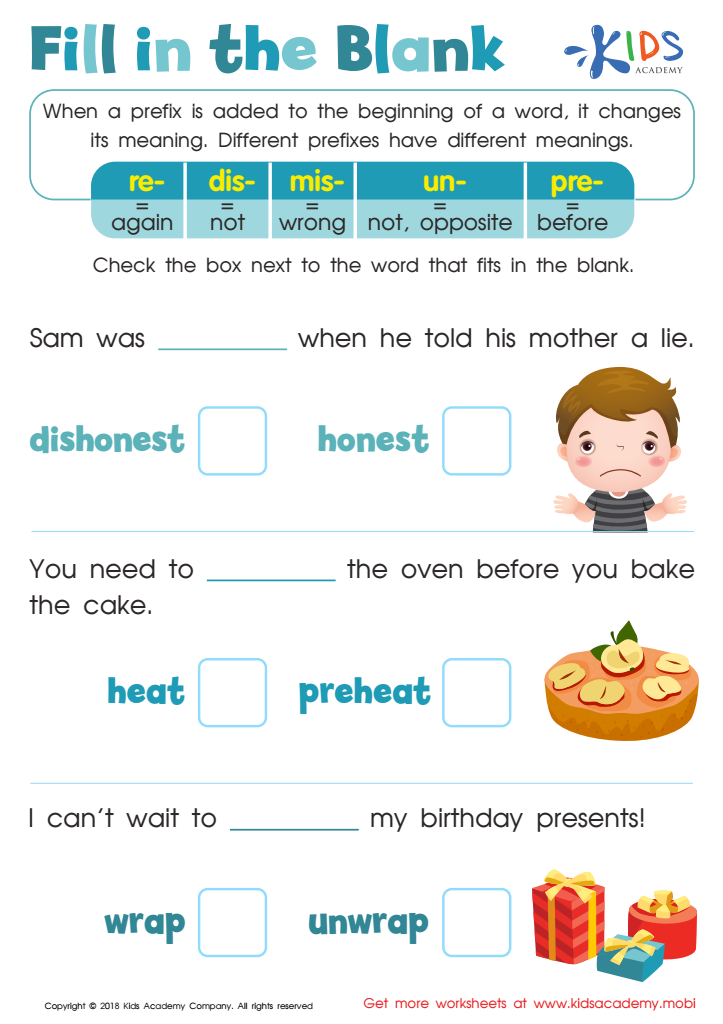

Reading: Fill in the Blank Worksheet
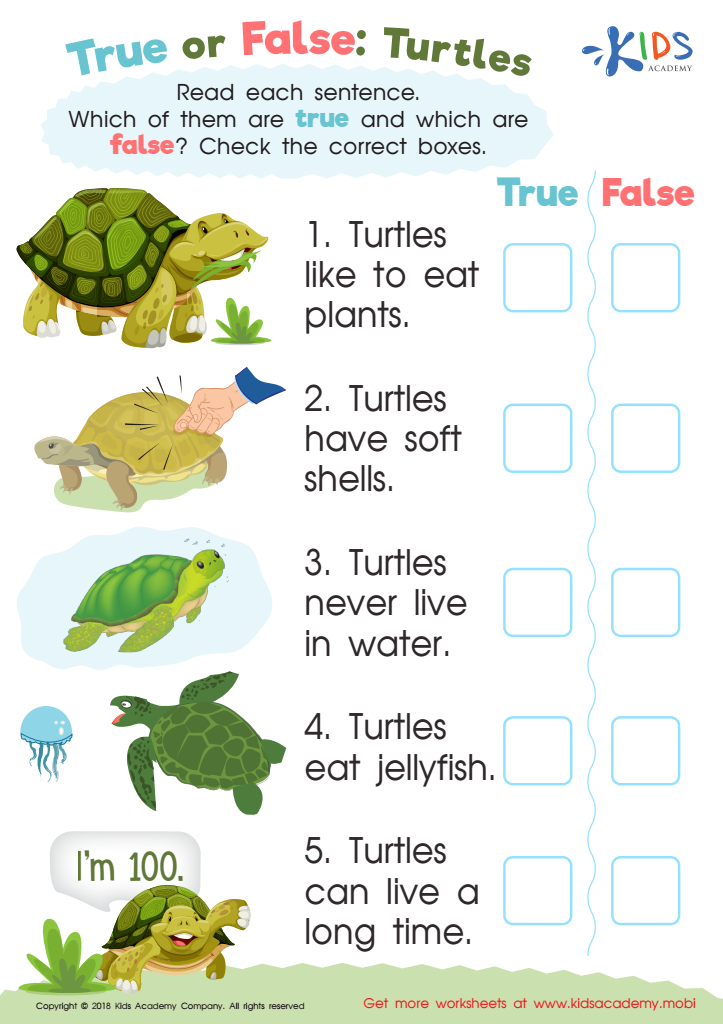

True or False: Turtles Worksheet
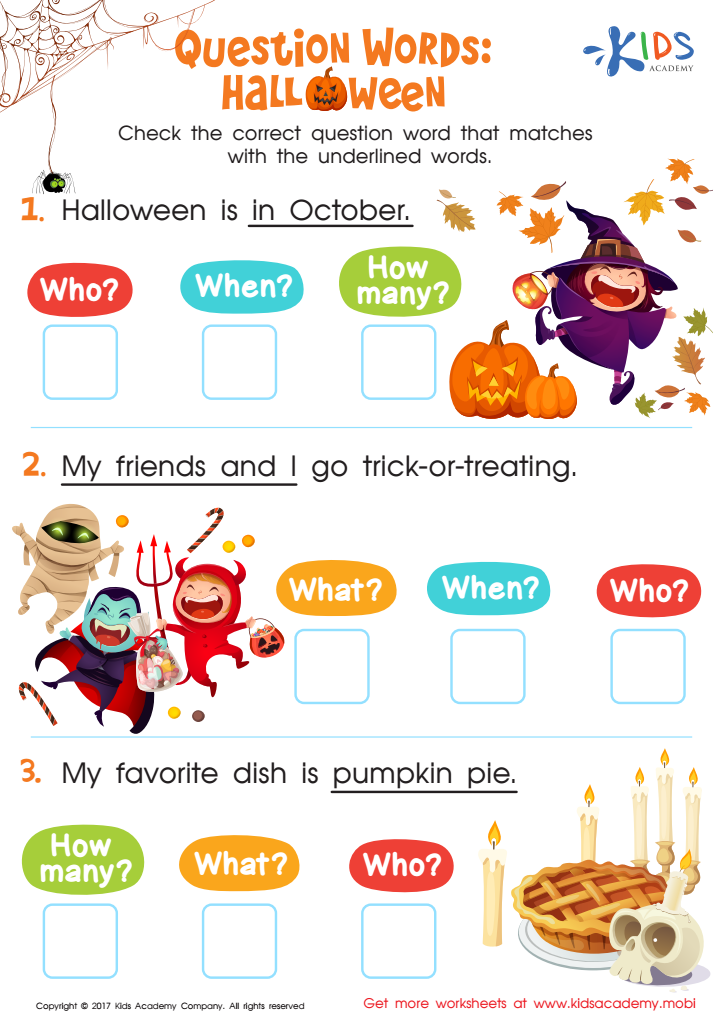

Question Words: Halloween Worksheet


Benjamin Franklin Worksheet
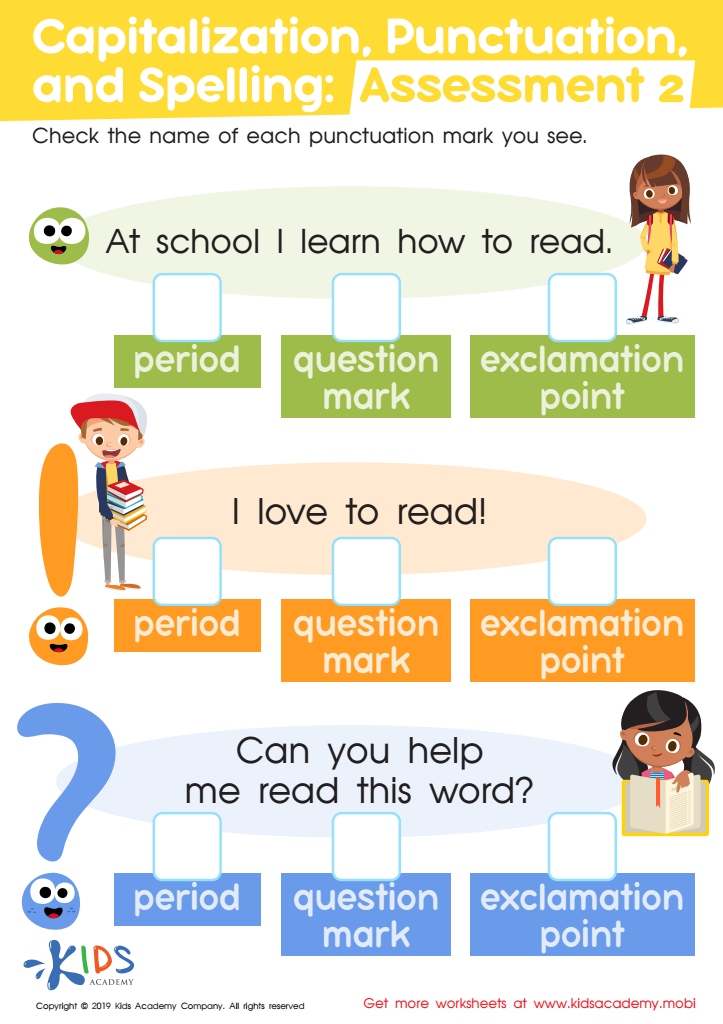

Capitalization. Punctuation. Spelling: Assessment 2 Worksheet
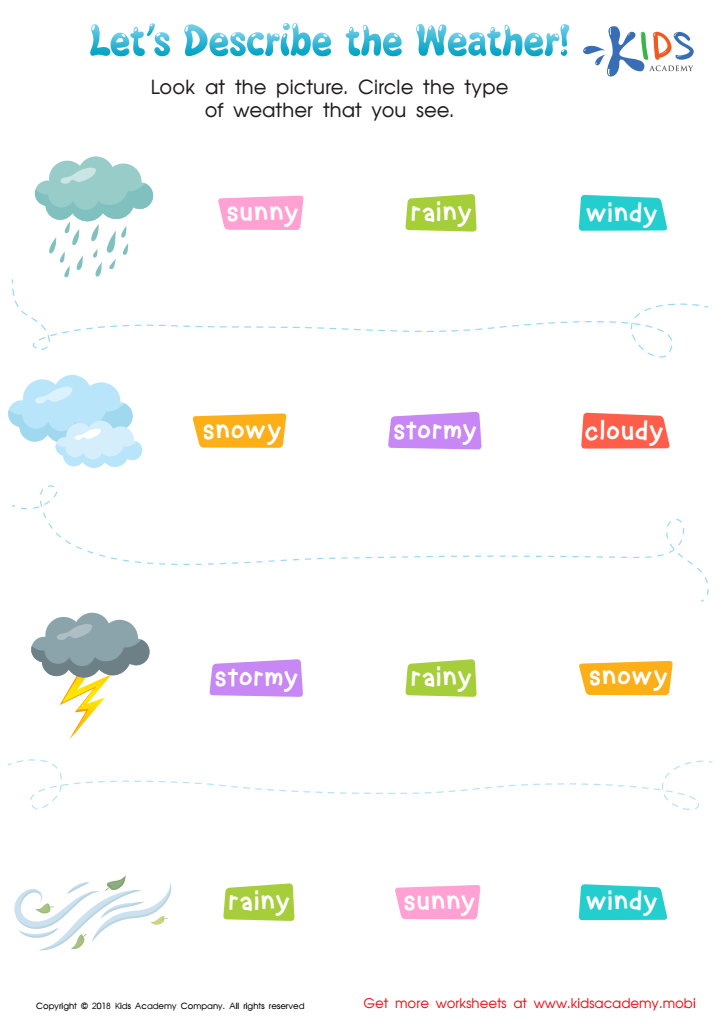

Let's Describe the Weather! Worksheet
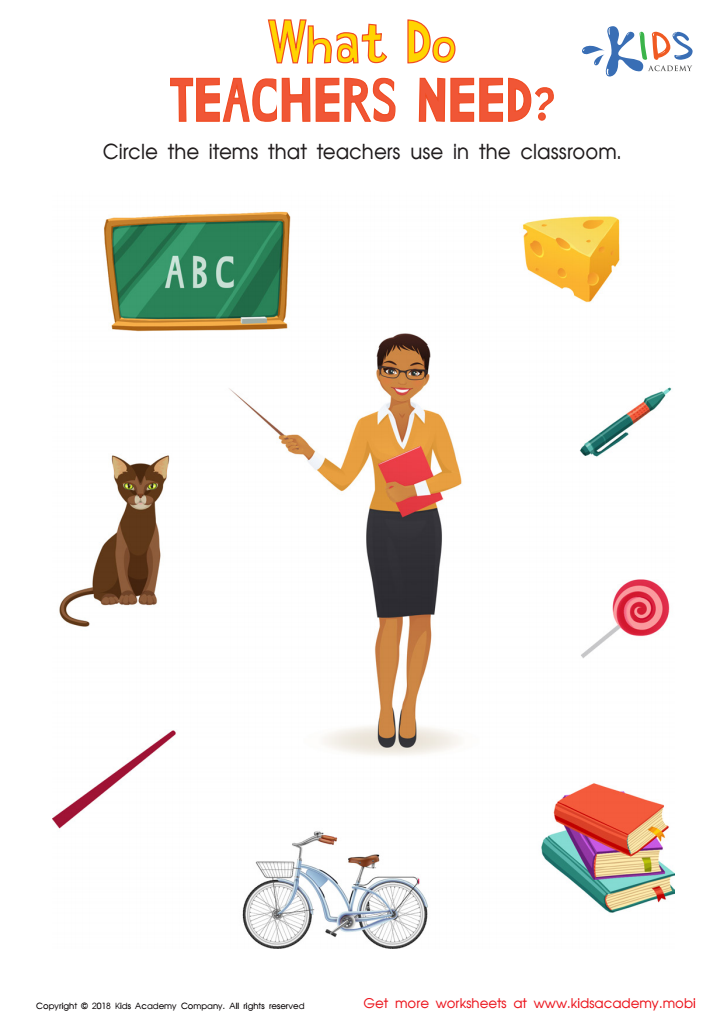

What Do Teachers Need Worksheet
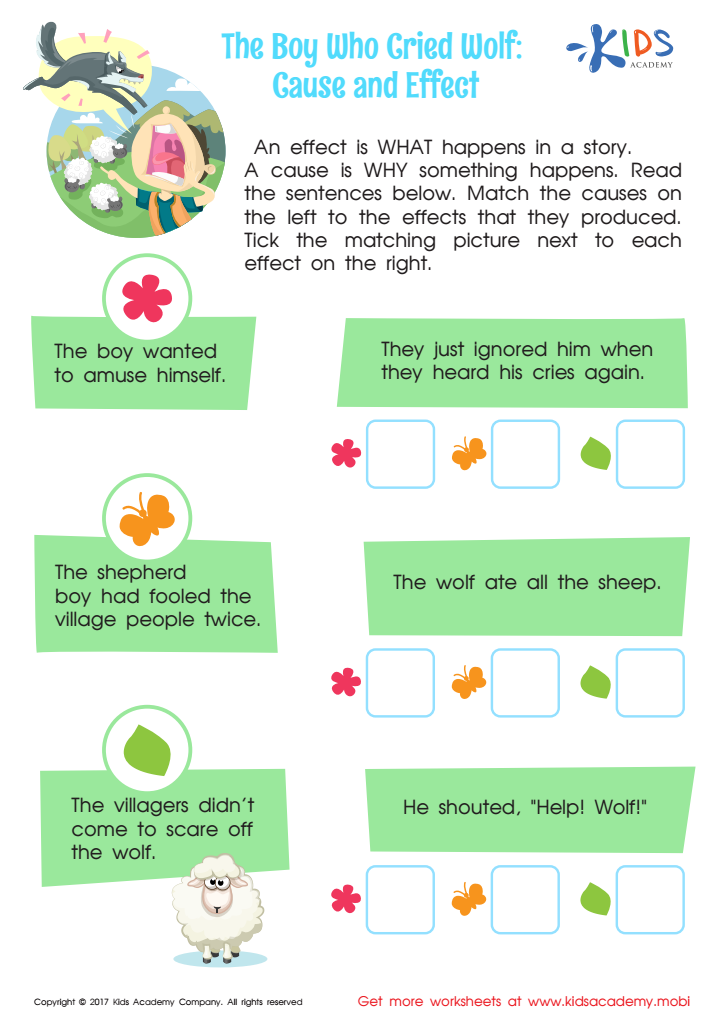

The Boy Who Cried Wolf: Cause and Effect Worksheet
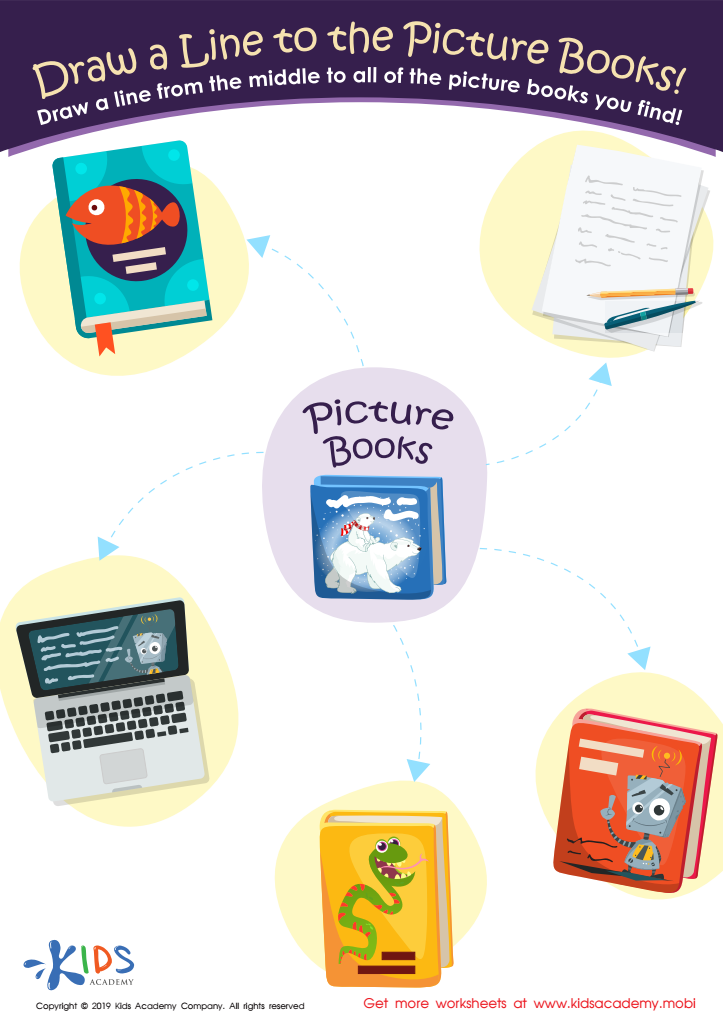

Draw a Line to the Picture Books Worksheet
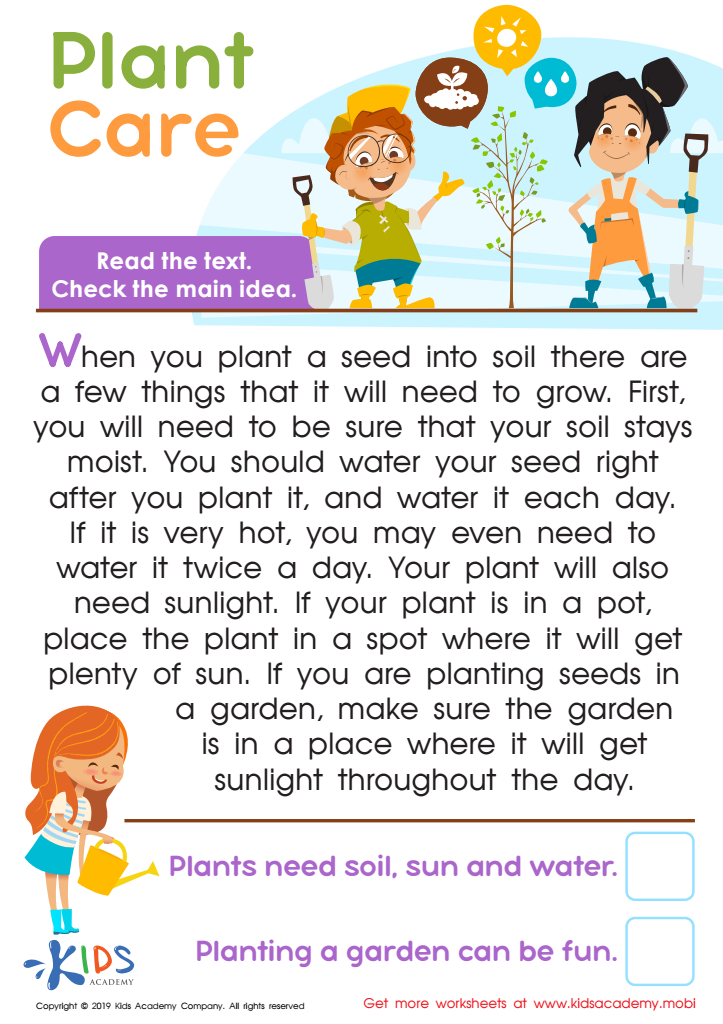

Plant Care Worksheet


What Do Plants Need to Grow Worksheet
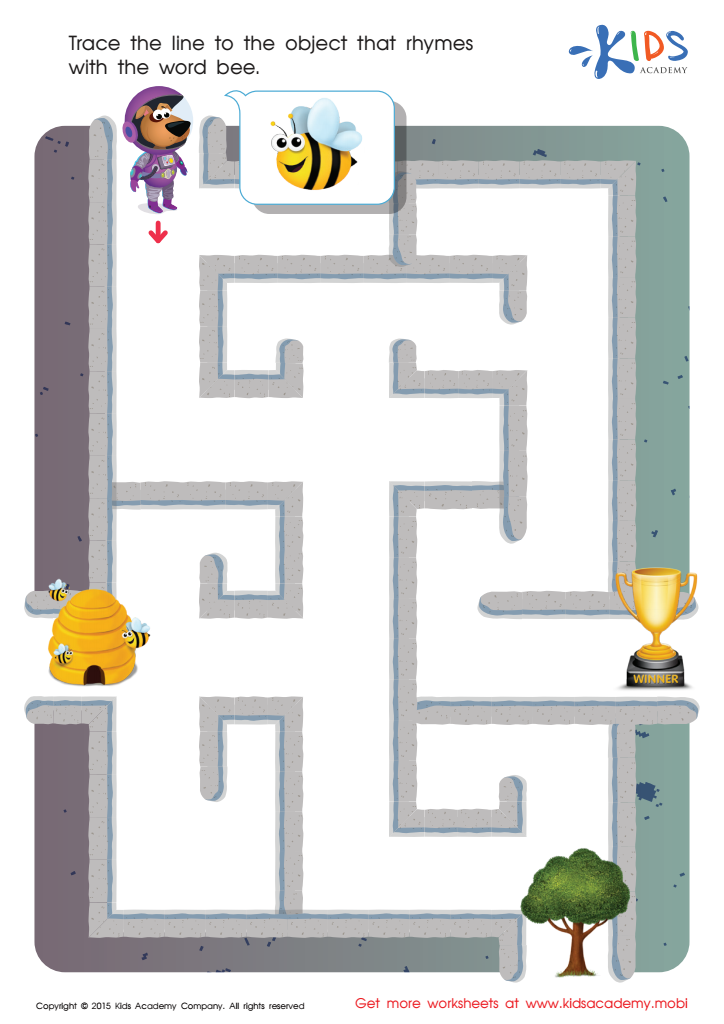

Bee Rhyming Words Worksheet
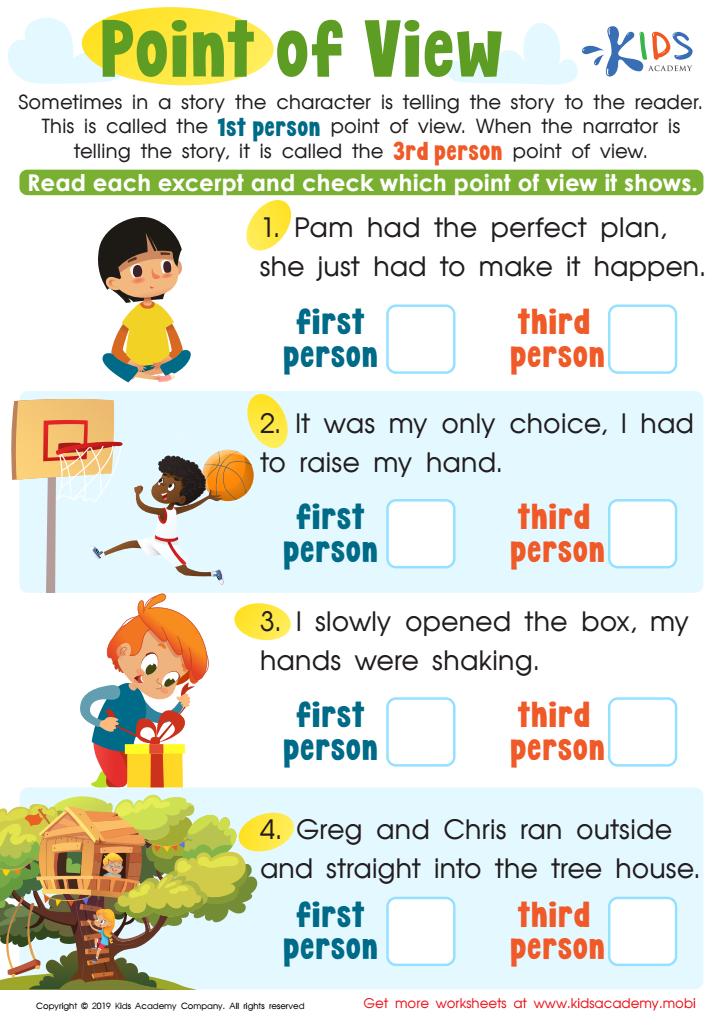

Point of View Printable
Parents and teachers should prioritize developing comprehension skills in children aged 4-7 because these skills form the foundation for future learning and academic success. At this critical stage, young minds are rapidly growing, and the ability to understand and process information is essential. Strong comprehension skills aid children in understanding stories, following directions, and engaging with the material beyond surface-level recognition of words.
Improved comprehension enriches vocabulary, as encountering new words in context allows children to infer meanings and properly use them. These skills also enhance listening abilities, fostering better communication and social interactions. By grasping context and nuances, young learners improve their critical thinking, enabling them to connect ideas and draw conclusions, which are crucial for problem-solving and reasoning across various subjects.
Moreover, proficient comprehension contributes to a child’s confidence and motivation to learn. Children who understand what they read or hear are more likely to enjoy learning experiences, leading to a lifetime of curiosity and exploration.
For educators and parents, fostering comprehension skills involves reading stories aloud, engaging in discussions about books, using visual aids, and incorporating interactive activities that require children to think about the material. Investing in these skills early sets up a supportive learning environment and equips children to excel both academically and in everyday life.
 Assign to My Students
Assign to My Students



